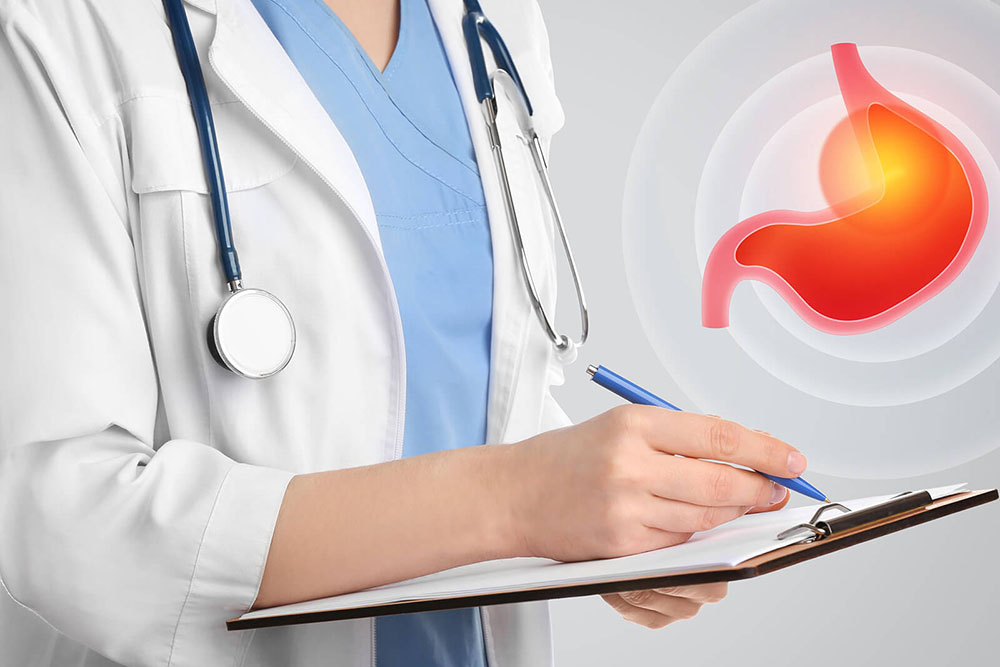What Are Gastrointestinal Disorders?
Gastrointestinal (GI) disorders affect your digestive system-from your throat to your colon. These conditions can change how you digest food, absorb nutrients, or move waste. Many people in Houston seek help when they experience pain, bloating, or trouble with bowel habits.
Common Causes and Risk Factors
- Eating too many processed or fatty foods
- Low fiber intake
- Ongoing stress or anxiety
- Stomach or intestinal infections
- Autoimmune problems (like celiac disease)
- Smoking or drinking too much alcohol
- Family history of GI illness
Signs and Symptoms
- Stomach cramps or belly pain
- Bloating or excessive gas
- Acid reflux or heartburn
- Constipation or diarrhea
- Unintentional weight loss
- Blood in stool (seek medical attention immediately)
How Dr. Rishi Diagnoses Gastrointestinal Disorders
Dr. Chadha uses a step-by-step approach:
Medical History & Symptom Review
He discusses your digestive complaints, diet, family history and any prior GI issues to pinpoint possible causes.
Physical Examination
At his Houston clinic, Dr. Chadha performs a focused abdominal exam, checking for tenderness, swelling or abnormal sounds.
Laboratory Tests
Depending on your symptoms, he may order:
- Blood tests to assess for anemia, infection or inflammation
- Stool studies to detect infections, blood or malabsorption
- Breath tests for small-intestinal bacterial overgrowth (SIBO) or lactose intolerance
Imaging & Advanced Procedures
When needed, Dr. Chadha recommends:
- CT scan or MRI to visualize the bowel and surrounding organs
- Upper endoscopy to examine the esophagus, stomach and duodenum
- Colonoscopy to evaluate the colon and rectum, with optional biopsy
Frequently Asked Questions
What are the most common GI disorders?
GERD, IBS, Crohn's, colitis, and celiac disease.
When should I see a doctor for belly pain?
If pain is strong, lasts more than two days, or comes with fever or bleeding.
Can stress affect digestion?
Yes. It can worsen acid reflux and trigger IBS symptoms.
How are GI disorders diagnosed?
Through medical history, physical exams, lab tests, and procedures like endoscopy or colonoscopy.
Is there a special GI-friendly diet?
Yes. It includes fiber-rich foods, lean protein, and avoiding triggers like spicy or fatty meals.
Will I need surgery?
Most people improve with medicine and diet. Surgery is only for certain cases.
Can kids have GI issues?
Yes. Children can have reflux, IBS, or celiac disease too.
How long does treatment take?
Many patients feel better in a few weeks. Chronic cases require longer care.
Do I need to prepare for a colonoscopy?
Yes. You'll follow a clear liquid diet and take a special prep to clean your bowels.
When should I see a gastroenterologist?
If you have long-term belly pain, reflux, bleeding, or unexplained weight loss, it's time to see a specialist.











